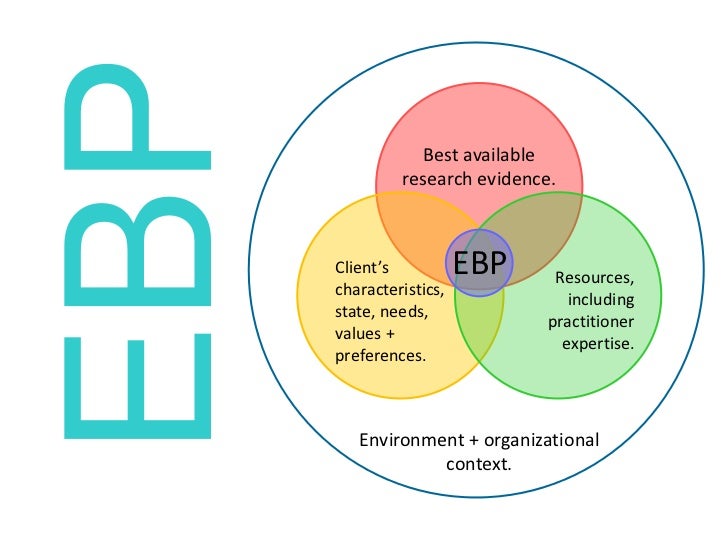

Environment + organizational context. EBP. "Evidence-based Social Work Practice." 2012. Accessed September 14, 2016.
Evidence-based practice (EBP) is a process in which the practitioner combines well-researched interventions with clinical experience and ethics, and client preferences and culture to guide and inform the delivery of treatments and services. The practitioner, researcher and client must work together in order to identify what works, for whom and under what conditions. This approach ensures that the treatments and services, when used as intended, will have the most effective outcomes as demonstrated by the research. ~Social Work Policy Institute
Typically used in evidence-based medicine, the PICO model is a useful way of formulating client, community, or policy-related research questions. A well-built question or problem should include the four components of the model: Problem, Intervention, Comparison and Outcome.
See below for a client-problem research question example:
| Problem | Describe the client/patient. Important descriptors might include: age and gender. Then describe the problem the patient is experiencing. For example, you might say, "A four-year-old boy with PTSD" |
| Intervention | Describe the intervention or treatment you are considering for the client/patient. For example, "EMDR psychotherapy" for the child. |
| Comparison | Ask yourself if there is a main alternative intervention that exists for the problem that you wish to use as a base of comparison. Example: "cognitive-behavioral therapy." (Note: you may not always wish to compare interventions, so sometimes this part of your research question will be omitted.) |
| Outcome | Ask yourself what result you want to see because of the therapy. Example: "decreased PTSD symptoms, such as nightmares" |